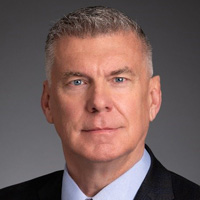Tempted to Make Rash Financial Decisions? Do This Instead
Americans are understandably stressed about the cost of living these days, and some might make emotion-driven choices that could cost them in the long run. What should they do?


Profit and prosper with the best of Kiplinger's advice on investing, taxes, retirement, personal finance and much more. Delivered daily. Enter your email in the box and click Sign Me Up.
You are now subscribed
Your newsletter sign-up was successful
Want to add more newsletters?

Delivered daily
Kiplinger Today
Profit and prosper with the best of Kiplinger's advice on investing, taxes, retirement, personal finance and much more delivered daily. Smart money moves start here.

Sent five days a week
Kiplinger A Step Ahead
Get practical help to make better financial decisions in your everyday life, from spending to savings on top deals.

Delivered daily
Kiplinger Closing Bell
Get today's biggest financial and investing headlines delivered to your inbox every day the U.S. stock market is open.

Sent twice a week
Kiplinger Adviser Intel
Financial pros across the country share best practices and fresh tactics to preserve and grow your wealth.

Delivered weekly
Kiplinger Tax Tips
Trim your federal and state tax bills with practical tax-planning and tax-cutting strategies.

Sent twice a week
Kiplinger Retirement Tips
Your twice-a-week guide to planning and enjoying a financially secure and richly rewarding retirement

Sent bimonthly.
Kiplinger Adviser Angle
Insights for advisers, wealth managers and other financial professionals.

Sent twice a week
Kiplinger Investing Weekly
Your twice-a-week roundup of promising stocks, funds, companies and industries you should consider, ones you should avoid, and why.

Sent weekly for six weeks
Kiplinger Invest for Retirement
Your step-by-step six-part series on how to invest for retirement, from devising a successful strategy to exactly which investments to choose.
Anyone who has made an important financial decision knows it’s nearly impossible to take emotion out of the equation. Sometimes our personal financial decisions are influenced by positive feelings — a hope for success or a better future. But fear is also a powerful motivator, particularly the fear of losing money.
When confronted with financial worries or uncertainty, people often look for an immediate solution. Taking quick action may temporarily ease anxieties, but short-term solutions often come at the expense of long-term goals. In times like these, consumers need competent, ethical financial advice.
Even as the pandemic’s financial impacts subside, our economy remains rife with uncertainty. According to CFP Board’s recent consumer sentiment survey, 89% of Americans are concerned about the current cost of living in the United States. A similar percentage of survey respondents said they were worried about inflation and price increases. Nearly two-thirds of respondents expressed concerns about being able to pay for basic necessities, like food and clothing, while 55% were worried about making their rent or mortgage payments.
From just $107.88 $24.99 for Kiplinger Personal Finance
Become a smarter, better informed investor. Subscribe from just $107.88 $24.99, plus get up to 4 Special Issues

Sign up for Kiplinger’s Free Newsletters
Profit and prosper with the best of expert advice on investing, taxes, retirement, personal finance and more - straight to your e-mail.
Profit and prosper with the best of expert advice - straight to your e-mail.
The fear of not being able to afford basic necessities, compounded by today’s complicated economic outlook, keeps many people focused on the near term. Survey data reflects a focus on immediate cost-saving measures, such as purchasing sale items, buying cheaper brands and eating at home. While this is understandable, there is also increased anxiety about the future. The survey found that the ability to save, manage debt and adequately plan for retirement were also top financial concerns.
Many consider short-term decisions with long-term effects
Preparing for retirement is a responsibility that every American faces. In a world with disappearing pensions and rising costs, not saving today can have long-term repercussions. Despite Americans’ concerns about current financial challenges, 34% of survey respondents saved more for retirement in 2022. However, respondents were also considering rash, short-term decisions. Nearly one-fourth of all respondents said they were likely to withdraw money from a retirement account to help cover current expenses. And those under age 45 said they were more likely to delay credit card or loan payments. Each of these choices can have a significant negative impact on long-term financial health, especially in retirement.
While there were many similarities between older and younger cohorts, we found that respondents age 45 and older were much more concerned about saving money than their younger counterparts, likely because they have less time to do so. The generational differences reflected in our consumer survey underscore the value of personalized financial plans that account for individual circumstances and goals.
Fear and anxiety do not need to drive financial decisions. Proactive and prudent financial planning is key to avoiding emotion-driven decisions and maintaining a long view during times of turmoil.
The first step is to make a list of your goals. Saving for retirement is often a priority, but also think about short- and midterm needs, such as managing debt, saving for education, paying for a wedding, buying a car or even paying for a vacation. It is also worthwhile to write down questions you have about managing money. Do you understand the benefits your employer offers, such as a 401(k) or health savings account (HSA)? For government employees or military service members, have you accessed the Thrift Savings Plan?
Many tools and resources online
Once you have your lists of questions and considerations, there are many reputable resources available online. The Let’s Make a Plan! website includes tools and tips for every stage of life on many popular topics, including saving, budgeting and retirement planning.
Balancing short-term challenges and prioritizing long-term goals can be overwhelming.
A financial planner can help you develop a personalized financial plan to guide you through complicated financial decisions in a way that keeps you on track to reach your goals. Whether the focus is a current challenge, such as reducing debt, or working toward a future goal, a holistic approach with objective guidance can make the process less daunting.
You don’t need to be wealthy to work with a financial planner. Today, financial planners offer a variety of ways to pay for their services. Common choices include a monthly or quarterly retainer fee (also called a subscription fee), an hourly rate or fixed fee by the service, a fee based on the percentage of assets managed by the financial adviser or a commission on transactions. Some financial planners offer multiple options and can help you determine what makes the most sense for you.
If you haven’t already, it is worth considering working with a financial planner. A qualified financial planner who adheres to fiduciary standards can provide expertise, support and perspective to help you navigate uncertainty and manage emotional choices while prioritizing short- and long-term financial goals.
Profit and prosper with the best of Kiplinger's advice on investing, taxes, retirement, personal finance and much more. Delivered daily. Enter your email in the box and click Sign Me Up.

Kevin R. Keller, CAE, is CEO of the Certified Financial Planner Board of Standards Inc. CFP Board sets standards for financial planning and administers the prestigious CFP® certification – one of the most respected certifications in financial services and one of the few accredited financial services designations. He leads CFP Board to benefit the public by granting CFP® certification and upholding it as the standard of excellence for competent and ethical personal financial planning.
-
 Quiz: Do You Know How to Avoid the "Medigap Trap?"
Quiz: Do You Know How to Avoid the "Medigap Trap?"Quiz Test your basic knowledge of the "Medigap Trap" in our quick quiz.
-
 5 Top Tax-Efficient Mutual Funds for Smarter Investing
5 Top Tax-Efficient Mutual Funds for Smarter InvestingMutual funds are many things, but "tax-friendly" usually isn't one of them. These are the exceptions.
-
 AI Sparks Existential Crisis for Software Stocks
AI Sparks Existential Crisis for Software StocksThe Kiplinger Letter Fears that SaaS subscription software could be rendered obsolete by artificial intelligence make investors jittery.
-
 Social Security Break-Even Math Is Helpful, But Don't Let It Dictate When You'll File
Social Security Break-Even Math Is Helpful, But Don't Let It Dictate When You'll FileYour Social Security break-even age tells you how long you'd need to live for delaying to pay off, but shouldn't be the sole basis for deciding when to claim.
-
 I'm an Opportunity Zone Pro: This Is How to Deliver Roth-Like Tax-Free Growth (Without Contribution Limits)
I'm an Opportunity Zone Pro: This Is How to Deliver Roth-Like Tax-Free Growth (Without Contribution Limits)Investors who combine Roth IRAs, the gold standard of tax-free savings, with qualified opportunity funds could enjoy decades of tax-free growth.
-
 One of the Most Powerful Wealth-Building Moves a Woman Can Make: A Midcareer Pivot
One of the Most Powerful Wealth-Building Moves a Woman Can Make: A Midcareer PivotIf it feels like you can't sustain what you're doing for the next 20 years, it's time for an honest look at what's draining you and what energizes you.
-
 I'm a Wealth Adviser Obsessed With Mahjong: Here Are 8 Ways It Can Teach Us How to Manage Our Money
I'm a Wealth Adviser Obsessed With Mahjong: Here Are 8 Ways It Can Teach Us How to Manage Our MoneyThis increasingly popular Chinese game can teach us not only how to help manage our money but also how important it is to connect with other people.
-
 Looking for a Financial Book That Won't Put Your Young Adult to Sleep? This One Makes 'Cents'
Looking for a Financial Book That Won't Put Your Young Adult to Sleep? This One Makes 'Cents'"Wealth Your Way" by Cosmo DeStefano offers a highly accessible guide for young adults and their parents on building wealth through simple, consistent habits.
-
 Global Uncertainty Has Investors Running Scared: This Is How Advisers Can Reassure Them
Global Uncertainty Has Investors Running Scared: This Is How Advisers Can Reassure ThemHow can advisers reassure clients nervous about their plans in an increasingly complex and rapidly changing world? This conversational framework provides the key.
-
 I'm a Real Estate Investing Pro: This Is How to Use 1031 Exchanges to Scale Up Your Real Estate Empire
I'm a Real Estate Investing Pro: This Is How to Use 1031 Exchanges to Scale Up Your Real Estate EmpireSmall rental properties can be excellent investments, but you can use 1031 exchanges to transition to commercial real estate for bigger wealth-building.
-
 Should You Jump on the Roth Conversion Bandwagon? A Financial Adviser Weighs In
Should You Jump on the Roth Conversion Bandwagon? A Financial Adviser Weighs InRoth conversions are all the rage, but what works well for one household can cause financial strain for another. This is what you should consider before moving ahead.